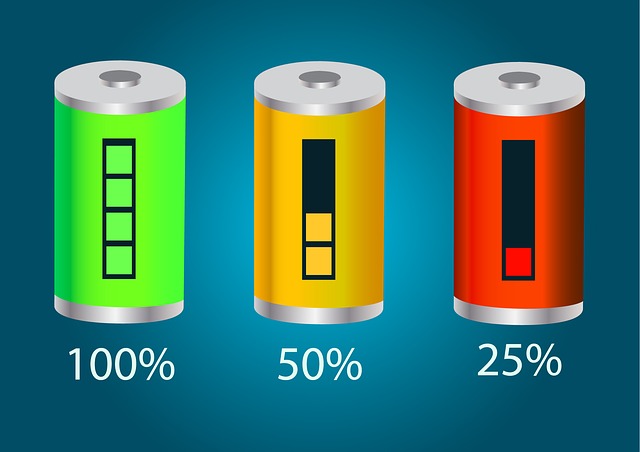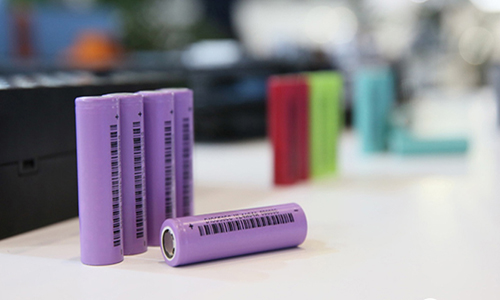Where Can I Dispose Of Lithium-ion Batteries?
Nov 29, 2019 Pageview:1092
Introduction
Batteries are in everything these days, it seems. We use them a lot and they make our lives a lot easier. They enable us to have access to electronics and machinery that would otherwise have to be plugged in. They have come a very long way since their first days and they are now excellent. Their size, durability, and charge holding are some of the features that have gotten much better. They do keep improving all the time, too. The problem is that they will often die on us and they are not very eco-friendly if they are not disposed of in the proper way. We are going to take a look at this subject today to see if we can get you all the information related to it. We hope that you will learn all you need to from this article so that you can dispose of your batteries well.
Their impact on the environment
This is an important subject because lithium-ion batteries have a very negative impact on the environment. They can be very toxic to whatever place they are dumped into if not taken care of. They also use rare materials for their construction. That means that if those are not reused we are wasting valuable resources. It is estimated that a battery that is not disposed of properly will take about 1000 years to properly decompose and return to the earth. And, on top of that, it will leave toxic materials behind when it finally does. This is all very problematic. The good news is that there is a way for us to mitigate this problem by a lot. We just need to be responsible in the way we handle our batteries once they complete their cycle. Let us take a look at the things that we can do
Recycling
Recycling is great for the environment in general. It offers us a way to reuse materials, and the ones that cannot be reused can be either transformed into something useful or gotten rid of in a manner that is not toxic to the place they are dumped in. We should strive to recycle every time we can. Many people do not know that batteries require special waste treatment when disposed of. That means that a lot of batteries that could be recycled end up in landfills all over the world, where they are left to pollute for up to a thousand years.
Where do you dispose of lithium-ion batteries?
There is a special kind of processing plant that takes care of handling dead lithium-ion batteries. These plants make sure that a few things happen with them, let us take a look.
1.They get reused. It may be the case that the batteries can still perform their duties in their current form. The first step that every processing plant takes is to make sure that these batteries are not fit for reuse. If they are they will become part of a new batteries at some point. There is much inside the battery that can be used again if treated properly.
2.If they must, they are scrapped for materials. Once it is determined that these batteries will have to be taken apart that is done. It is done in a way that allows the rare materials to be reused for the construction of other batteries. In this way, the environmental impact is lessened substantially.
3.Waste is handled correctly. The parts of the battery cannot be reused in any way a treated for waste disposal in a proper fashion. That means that the plastic on them gets recycled or treated for disposal. The same goes for all the other components that are not of high reusability.
How do they get there?
All of these things will happen only if the battery gets to a battery processing facility. For that to happen the battery must be disposed of correctly. The correct way to do it would be using a battery disposal bin. Electronic waste bins are getting quite common. You can usually find them all around in big cities around the world today. Batteries are everywhere and their impact on the environment is very real. It only makes sense that the tools to treat them properly would be readily available for everyone that uses them.
How do you dispose of a punctured lithium-ion battery?
A punctured lithium-ion battery can be a problem. You should try to avoid contact with the liquid contents of a battery, and they may harm your skin. They should surely not come into contact with your eyes or membranes. That would be very harmful to you indeed. If you do have to handle a punctured lithium-ion battery you should try to carefully get it to an electronic waste bin as soon as you can.
Are lithium-ion batteries a hazardous waste?
Hazardous waste is a category that changes over time and depending on your local regulations. In the US, lithium-ion batteries are currently not considered as hazardous waste. That category is reserved for materials and chemical compounds that harm the soil and other environmental parts of the ecosystem in a more destructive and permanent way. Even though that is the current definition, it may be subject to change. Even if it does not, we should treat batteries as dangerous materials for the earth, since their wrong disposal does have negative effects.
Conclusion
We have looked at this issue in-depth. Although they may not be considered hazardous material they are a problem to our environment. We hope that this article helped you in your understanding of this issue. Also, that it will motivate you to take the necessary steps to dispose of your batteries in a safe way. As we have seen it is not very hard to do it in the right way today.
- Prev Article: The Science Behind Lithium Ion Battery: Chemical Equation!
- Next Article: Where Can I Recycle Lithium Batteries?
Leave Message
Hottest Categories
-
Hottest Industry News
-
Latest Industry News











